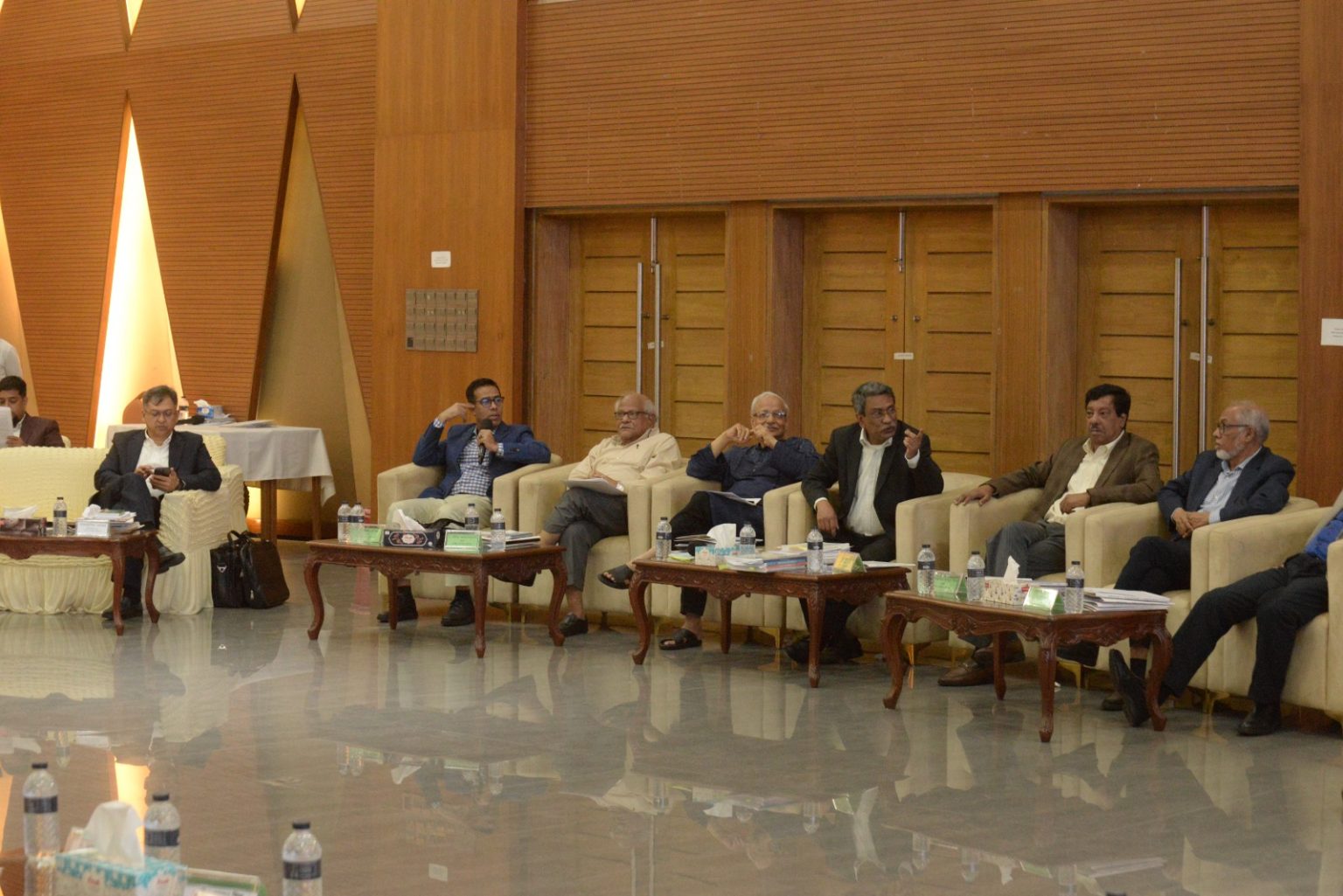The 20th day of the second phase of dialogue between political parties and the National Consensus Commission(NCC) unfolded with dramatic twists, including a temporary walkout by the BNP and an unexpected fire alarm that disrupted proceedings.
The session, held on Monday at the Shapla Hall of the Foreign Service Academy’s main building in Dhaka, saw a series of tense moments as critical issues—such as appointments to constitutional bodies—came under debate.
At 12:20 pm, a sudden fire alarm forced the commission’s vice-chairman Ali Riaz to suspend the meeting. Attendees quickly evacuated the building amid confusion and concern. Although the alarm stopped after 20 minutes, discussions did not resume until around 12:45 pm, when the session was shifted to the adjacent Doel Hall.
No official explanation was given by the commission for the activation of the alarm. Initial speculation suggested that smoking or the presence of a heat source inside the building may have triggered the system.
Earlier in the day, BNP Standing Committee member Salahuddin Ahmed staged a walkout in protest over proposals concerning the appointment procedures for key constitutional bodies—including the Public Service Commission (PSC), Anti-Corruption Commission (ACC), Comptroller and Auditor General (CAG), and the Ombudsman. The party had already signalled that it would not participate in discussions on these issues.
However, the BNP delegation returned to the talks after a short interval and rejoined the discussion.
Speaking to reporters, Salahuddin said, “We had proposed that no individual should serve as prime minister for more than 10 years. That proposal has been accepted. We also suggested forming an independent search committee for appointing election commissioners, comprising representatives from the ruling party, opposition, and the judiciary. This too has been agreed upon.”
He added that the BNP had also proposed a provision that any future constitutional amendment by Parliament under a caretaker government must be subject to a public referendum before receiving presidential assent. The acceptance of this proposal, he said, marks a significant step toward long-term political stability.
Despite these breakthroughs, Salahuddin expressed concern over efforts to curb executive power. “If the executive is stripped of authority and left only with responsibility and accountability, it will not be able to function as an effective arm of the government,” he warned.
Commission vice-chairman Ali Riaz confirmed that consensus had already been reached on 12 key issues, with further discussions ongoing on remaining matters.
“We are working to produce a historic charter that outlines a clear path forward for Bangladesh,” Riaz said. “Our goal is to ensure that the country never again descends into the political deadlocks of the past.”


